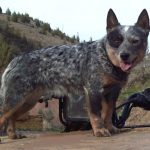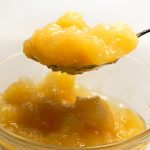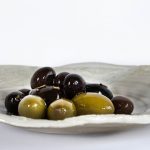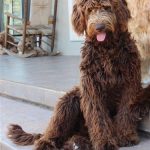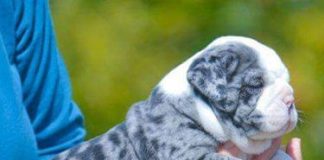
Corgis are nicknamed as “dwarf dogs.” Could they get any shorter? Yes, there is a miniature version called the teacup Corgis! But before being hooked on teacup Corgis, first read to find out where they really come from and the reality of owning them.
What is a Teacup Corgi?
There is no such thing as a Miniature Corgi or a micro Corgi breed. The term “teacup” refers to dogs bred by pairing runts. Runts are the smallest and the weakest dogs of the litter. Because of their size, they find it difficult to compete with other puppies for their mother’s attention. This results in a lack of nutrition and more vulnerability to diseases. Still, a runt can grow as a healthy and normal-sized dog given it is given extra care and attention.
Teacup dogs are in fact a subject of controversy. The Royal Society for the Prevention of Cruelty to Animals warns against adopting them because they have weak bones, fractures, and dislocations. No kennel club currently recognizes teacup dogs. Responsible breeders will not sell runts for economic gain.
Appearance
The majority of Teacup Corgis are Pembrokes because Cardigan Welsh Corgis are rare. The Pembrokes come in red, sable, and black outer coat colors. Cardigans may have the same coat colors but some of them could be tan, brindle, or blue merle. Pembrokes are never merle. Some have white markings while others don’t.
Teacup Corgis have the feature of Pembroke Welsh Corgis except that they are way smaller than the average. A full-grown Corgi normally weighs 25-27 lbs. on average but the teacup Corgi, as with other miniature versions, only weighs 5 lbs. or less. You cannot expect it to grow 10-12 inches tall as with the Pembroke’s average grow-up height.
They have a moderately long body, deep chest, and a short but docked tail. They look like baby foxes because they have the same fox-like head of the Pembroke. They have firm and upright ears with slightly rounded points. They have dark and medium-sized eyes that are in harmony with their coat color.
Personality
Corgi is one of the best breeds for families. However, the fact that you have a teacup means you have to supervise it carefully, especially if you have kids in the house. It requires extra care and attention compared to a standard Corgi. Young children have the tendency to get too rough during play. They might hurt the teacup unintentionally.
Teacups are prone to accidents. They should be kept in a place where they will not be stepped on or a place that is not too high that they will end up injuring themselves. They should not be placed on a couch or a bed because they might fall and break their bones.
Because the teacup pups are vulnerable to serious medical conditions, your Corgi may not be able to display his best traits, like being loyal and loving. It is hard for your dog to be playful and adorable when it is enduring something. Corgis can make great pets but this is more challenging to achieve with a teacup because this dog cannot be as easily trained as a standard Corgi.
Health
Teacup dogs are plagued with a number of health problems. Many of them only live months instead of the Corgi’s average 12-15 years lifespan because they are at risk for the following conditions:
- Hypoglycemia – abnormally low blood sugar levels can occur in teacups if they missed a single meal. This has many causes and toy breeds are more prone to it because they use more glucose than they can store. It can result in loss of consciousness and death if left untreated.
- Heart-related problems – some pups are born with an abnormal heart sound as if it is murmuring. A large percentage of teacups suffer from chronic heart valve disease. Aside from an unusual sound coming from the heart, it is characterized by frequent coughing, fainting, and lack of energy.
- Urinary tract infection – it is common among teacup dogs because their tiny bladders are hindrances to stay dry much of the time. Housetraining can also be more challenging for them. Dogs with UTIs urinate frequently, have blood in the urine, and may lick their genitals obsessively.
- Liver shunts – this happens because their livers are not developed enough to flush out toxins accordingly. It is often caused by congenital portosystemic shunt which is a kind of birth defect. It is characterized by poor growth, weight loss, and increased thirst.
- Osteoporosis – this happens because many of them are deficient in the minerals necessary for proper bone growth. Signs include reluctance to exercise, high fever, and sudden lameness in the legs. If these signs are present, call your vet to see what you can do to help strengthen the dog’s bones.
- Worm infestation – there are sellers of teacup puppies who will tell you the dogs were already dewormed. It is worth noting that a single treatment will not completely remove all the worms. Signs of worm in dogs are vomiting, coughing, diarrhea, and change in appetite.
Feeding
The right amount of food to give to a teacup Corgi will depend on his weight, activity level, and the calories per serving in the type of dog food. For example, if his food offers 400 kcal per cup and he weighs 5 lbs. with a typical energy level, he only needs 204 kcal per day. That is equivalent to only half a cup per day. Because pups need to eat three times a day, you have to divide that quantity into three.
It is not advisable to offer human foods to teacup dogs as they will not be able to digest it well. If you have a teacup and you suspect it is suffering from a health problem, schedule an appointment with your vet. The vet may prescribe a special diet according to your Corgi’s health condition. A kibble specially formulated for small dogs might be recommended by your vet.
Grooming
Corgis shed a lot because they are a double-coated breed. They also go through seasonal shedding which happens twice a year. Regular brushing is recommended to prevent mats and tangles. However, you have to be extra gentle in doing this so you will not hurt the delicate teacup dog. It is worth investing in a good vacuum to easily get rid of pet hair at home.
It is not ideal to bathe them because they don’t always go outside in the first place. Cleaning them with dog wipes will be enough to keep them clean. There are wipes especially created for dogs and many of them are hypoallergenic. When choosing a dog wipe, choose products with all-natural skin conditioners and can reduce bacteria.
Exercise Needs
Normal Corgis require moderate exercise levels. They have extreme energy and would love lots of time outdoors. This does not come as a surprise because the Corgi was originally bred to herd. However, in the case of teacups, it is not advisable to take them outside regularly for long walks. Consider playing with them at home especially when it is too hot to expose them outside. Just be careful when playing around your dog because it can easily get injured.
Conclusion
A reputable breeder will not sell a Teacup Corgi. If you ever found one online, there is no guarantee that the dog underwent testing. Many organizations and veterinarians already warn against adopting or buying teacups because of their susceptibility to a number of medical conditions. Despite all these things, buying a teacup alone will cost you thousands of dollars.






